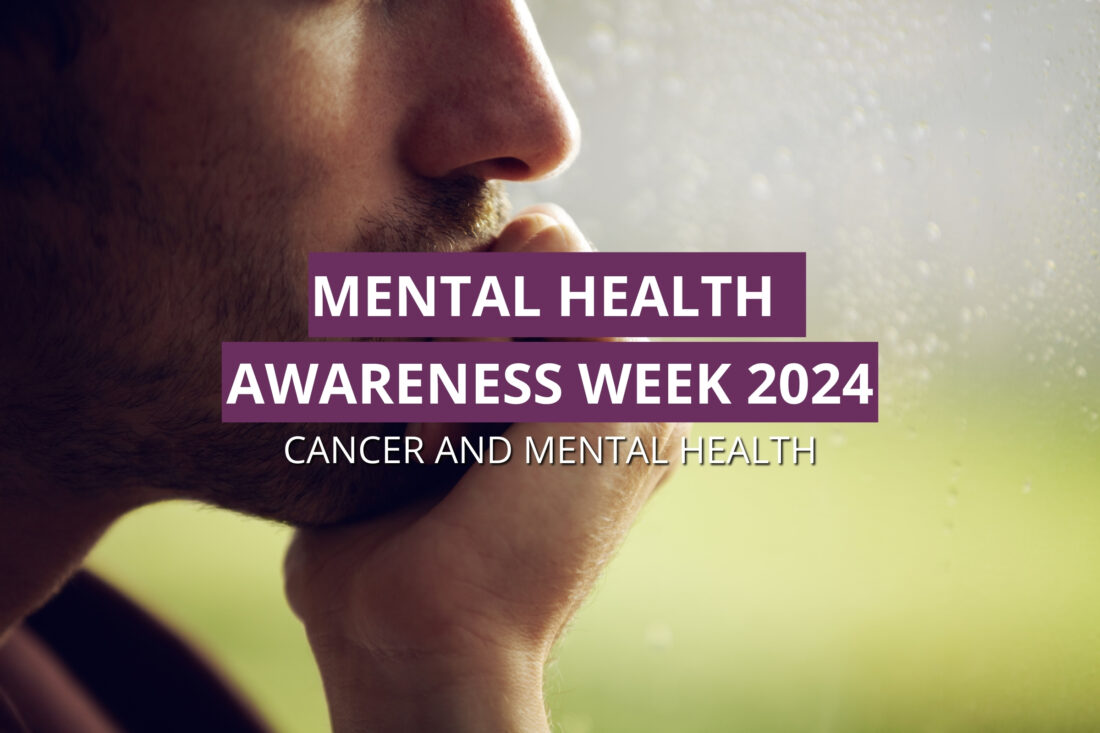Mental Health Awareness Week 2024: Cancer and Mental Health
Being diagnosed with cancer can be one of the most difficult situations that anyone has to face. It can cause great fear and worry and can affect every aspect of your life, including the ability to work. Various studies reveal that between 20-30% of cancer patients experience mental health issues such as depression and anxiety. Although the prevalence of mental health issues is generally recognised during cancer treatment, it is considered that there is a gap in cancer care when it comes to mental health issues.
When comparing the gap in attention to physical and emotional needs, 58% of cancer patients feel that their emotional needs are less acknowledged than their physical needs furthermore, up to 54% of cancer survivors in the UK still experience at least one psychological issue¹. An article from Fernando (2020)² argues in favour of improving the integrated approach in cancer care and focusing further on mental health, this enables people to live a better quality of life following cancer treatment.
With treatment for cancer itself improving, there has been an increase in cancer survivorship meaning there are more people now living beyond cancer and more people who will likely need further support following treatment. Along with an increase in retirement age, around half of people diagnosed with cancer are of working age (Ferlay et al, 2018) as referenced in a report by Bevan and Wilson³ in a Cancer and employment survey. As of 2013, fewer than two-thirds of employees have made a successful return to work or are still working one year following diagnosis (Mehnert et al, 2013). It is believed, as mentioned above, that bridging the gap between emotional and physical health in cancer care will greatly increase the quality of life beyond cancer and one would assume therefore the amount of people successfully returning to and sustaining work.
At Working To Wellbeing, we provide integrated and holistic health and work coaching to support individuals and help them remain in, or return to work. As part of our Cancer Work Support Programme, we can also provide physiotherapy and CBT therapy if needed. To find out more about the service, click here.
References:
-
- Healthy London Partnership. Commissioning guidance for cancer psychosocial support: A guide to improving psychologically informed care and clinical outcomes for adults affected by cancer in London, Healthy London Partnership (2020)
- A Fernando. Mental health and cancer: why it is time to innovate and integrate–a call to action
Eur Urol Focus, 6 (2020), pp. 1165-1167 - Bevan S & Wilson B. Cancer and Employment Survery, Institute for Employment Studies (2022) pp.3-4.


